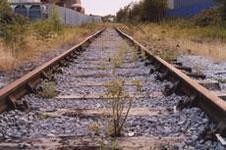Spiralling costs of West Coast Mainline extension proves building new lines is cheaper, says minister in support of high-speed link
Train operating companies have received over half a billion pounds in compensation for delays to the West Coast Mainline (WCML) extension, transport minister, Lord Adonis said at a conference on high-speed rail yesterday.
He detailed how the 1990s spec for a £4bn upgrade for a service at 140mph turned into an £8.8bn “descoped” project for a 125mph service.
“The new signalling [was] postponed and the capacity enhancement very much less than would have been achieved by a new line,” he said, adding: “Of the £8.8bn spent on the WCML upgrade, more than £500m has gone in compensation payments to train operating companies for not being able to operate services during the long periods of engineering work.”
Adonis said that this proved that building new, high-speed rail lines could be cheaper than upgrading existing lines and urged cross-party support for High Speed 2 (HS2), which would connect London to the West Midlands and possibly Scotland. The company, set up by the government, is examining proposals for the new line.
All three parties have professed support for the scheme. The Conservatives first posted support for the idea as an alternative to a third runway at Heathrow.
But Adonis also pointed out that High Speed 1 (HS1), which links St Pancras to the Channel Tunnel, had been arguably the most expensive railway build in the world.
Expert discussions about the route of the HS2 - whether it should go to Heathrow, stop at the West Midlands or continue to Scotland, whether it should go into city centres or allow for interchange onto suburban routes such as the ability to change for Crossrail at Wormwood Scrubs in west London - have begun in earnest.




























2 Readers' comments